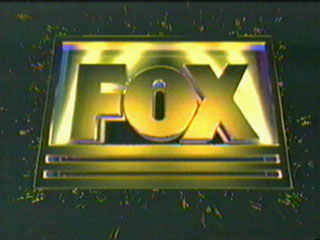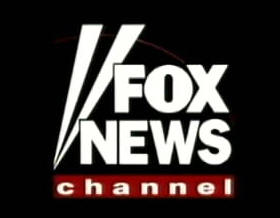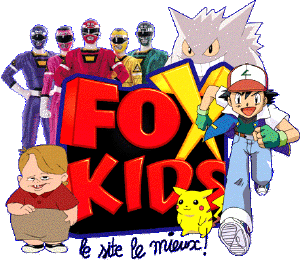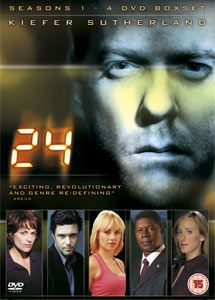
The Fox Broadcasting Company, usually referred to as just Fox television network in the United States and Canada. It is owned by Fox Entertainment Group, part of Rupert Murdoch's News Corporation. Fox started October 9, 1986 and has become the most highly-rated network amognst younger viewers.
The Fox name has been used on other entertainment channels internationally that are affiliated with News Corp., including in Japan, Italy, Spain, Portugal, South America and Australia.
HiStOrY
The Launch of the Fox network began in March 1985 with Rupert Murdoch’s, News Corp’s $525 million purchase of TCF Holdings, the parent company of 20th Century Fox movie studio. In May 1985, News Corp paid $1.55 billion to acquire independent television station in sox majors US media markets from Metromedia KTTV in Los Angeles, WLED in Chicago, KRLD in Dallas, KRIV in Houston, WNEW in New York and WTTG in Washington, DC. These stations broadcasted to 22% to US households and became known as the Fox Television Stations Group.
In October 1985, Murdoch announced plans to form an independent television system to compete with the three major US networks, ABC, CBS and NBC. He planned to both produce and distribute programming. In January 1986, Murdoch said of his planned network, "We at Fox at the moment are deeply involved in working to put shape and form on original programs. These will be shows with no outer limits. The only rules that we will enforce on these programs is they must have taste, they must be engaging, they must be entertaining and they must be original."
On May 6, 1986, Murdoch, along with newly-hired Fox CEO and chairman Barry Diller and comedian Joan Rivers, announced plans for "FBC" or the "Fox Broadcasting Company", with WNYW in New York as the flagship station, to be launched with a daily late-night talk show program, ‘The Late Show starring Joan Rivers’, When Fox was launched on October 9, 1986, it was broadcast to 96 stations reaching more than 80 percent of the nation's households. Fox had lined up 90 former independent stations as affiliates in addition to its original six seed stations. By contrast, ABC, CBS and NBC each had between 210 and 215 affiliates reaching more than 97 percent of the nation's households. Despite broadcasting only one show, the network was busy producing new programs with plans to gradually add prime-time programming one night at a time.
1980s
From the beginning, Fox established itself as a somewhat edgy, irreverent, youth-oriented network compared to its rivals. Its first prime-time shows, which debuted on Sunday nights beginning April 5. 1987 were a comedy about a dysfunctional family (Married With Children) and a variety series (The Tracy Ullman Show). The former would become a major hit for the network, airing for 11 seasons, while the latter would spawn the longest-running sitcom and animated series in history: The Simpsons, spun off in 1989 and set to air until at least 2008. Another early success was 21 Jump Street, an hour-long police drama. The original Sunday lineup also included the sitcoms Duet and It's Garry Shandling's Show.
Fox debuted its Saturday night programming over four weeks beginning July 11, 1987, with several shows now long forgotten: Mr. President, Women in Prison, The New Adventures of Beans Baxter and Second Chance.
The next two years saw the introduction of America's Most Wanted, profiling true crimes in hopes of capturing the criminals, and Cops, a reality show documenting the day-to-day activities of police officers. The two shows are among the network's longest-running and are credited with bringing reality television to the mainstream.
Fox would expand to seven nights a week of programming by 1993.
1990s
Despite a few successful shows, the network did not have a significant market share until the mid-1990s when News Corp. bought more TV station groups. The first was New World Communications, which had signed an affiliation deal with Fox in 1994 Later, in 2000, Fox bought several stations owned by Chris-Craft Industries . This made Fox one of the largest owners of television stations in the United States. Though Fox was growing rapidly as a network, and had established itself as a presence, it was still not considered a major competitor to the big three broadcast networks (ABC, CBS, and NBC).
The early and mid-1990s saw the launch of several soap-opera dramas aimed at younger audiences that became quick hits: Beverly Hills 90210, Melrose Place, and Party of Five. September 1993 saw the heavy promotion and debut of a short-lived Western with science-fiction elements, The Adventures of Brisco County, Jr. However, it was the Friday night show that debuted immediately following it, The X-Files, which would find long-lasting success.
2000's
Fox regained a ratings foothold with acclaimed dramas such as 24, The O.C., and House, and comedies such as Arrested Development, The Bernie Mac Show and Malcolm in the Middle. By 2005, Fox's most popular show by far was the talent search American Idol, peaking at up to 30 million viewers on certain episodes and finishing the 2004–05 and 2005–06 seasons as the nation's highest-rated program. House, airing after Idol on Tuesday nights and having had a successful run of summer repeats in 2005, has also positioned itself as a top-ten hit as of 2005–06.
It was estimated in 2003 that Fox is viewable by 96.18% of all U.S. households, reaching 102,565,710 houses in the United States. Fox has 180 VHF and UHF owned-and-operated or affiliate stations in the United States and U.S. possessions. Fox began broadcasting in HDTV in September 12, 2004with a series of NFL football games.
By the end of the 2004–2005 television season, Fox ranked No. 1 for the first time in its history among the 18–49 demographic most appealing to advertisers.
FoX nEwS

The Fox News Channel (FNC) is an American cable and satellite news channel. It is owned by the Fox Entertainment Group, and is a subsidiary of Rupert Murdoch's News Corporation. As of January 2005, it is available to 85 million households in the U.S. and to further viewers internationally, broadcasting primarily out of its New York City studios.
The network was launched on October 6, 1996 to 17 million cable subscribers. The network slowly rose to prominence in the late 1990s as it started chipping away at the ratings of competitor CNN. In the United States, Fox News Channel is the #1 news channel in terms of long-term viewers
fOx SpOrTs

Fox Sports is a division of the Fox Broadcasting Company . It was formed in 1994 with Fox's acquisition of broadcast rights to National Football League games and has single-handedly brought the Fox Broadcasting Company with the Big Three of network television. Other properties have included the National Hockey League (1994-1999), Major League Baseball (1996-present), World League Football (1997-2005), and NASCAR (2001-present).
FoX kIdS

Fox Kids (officially Fox Family Worldwide, Inc, and prior to that Fox Children's Productions and Fox Kids Worldwide) was the Fox network's children's programming division and brand name from September 8, 1990 until September 7, 2002.
It was a joint venture between News Corporation Limited and Haim Saban's Saban Entertainment (known for the Power Rangers franchise), airing Mondays-Saturdays.
Fox Kids would end in 2002 when Fox sold the money-losing Fox Family Channel and the Fox Kids division to The Walt Disney Company, owing to widening competition from cable channels like Nickelodeon and Cartoon Network.
CuRrEnT sChEdUlEs


News
FOX News Sunday (1996-present)
Drama
24 (2001-present) Bones (2005-present)
House (2004-present)
Justice(2006-present)
The O.C.(2003-present)
Prison Break (2005-present)
Standoff (2006-present)
Vanished (2006-present)
Sitcom
Happy Hour (2006-present)
The Loop (2006-present)
The War at Home (2005-present)
'Til Death (2006-present)
Animation
American Dad! (2005-present)
Family Guy (1999-present)
King of the Hill (1997-present)
The Simpsons (1989-present)
Reality/Non-Competition
American Idol (2002-present)
America's Most Wanted: America Fights Back (1988-present)
Celebrity Duets (2006-present)
COPS (1989-present)
Hell's Kitchen (2005-present)
Nanny 911 (2004-present)
So You Think You Can Dance (2005-present)
Trading Spouses (2004-present)
Unan1mous (2006-present)
Sports Competition NASCAR on FOX (2001-present)
MLB on FOX (1996-present)
The NFL on FOX/FOX NFL Sunday (1994-present) Four of the five games in the Bowl Championship Series (2007-present)
Late Night/Variety MADtv (1995-present)
Talkshow with Spike Feresten (2006-present)
Awards Ceremony
Teen Choice Awards (1999-present)
FiNaNcEs & MaNaGeMeNt
Company Type: Subsidiary of Fox Entertainment
Fiscal Year-End: June
2005 Sales (mil.): $2,624.0
1-Year Sales Growth: (42.4%)
President, FOX Television Network: Ed Wilson
President, Engineering: Andrew G. Setos
EVP Finance and Administration: Del Mayberry
fUtUrE dEvElOpMeNtS
Three series added to Fox stream
Fox Broadcasting Co. has extended its online streaming experiment to three more series.
The drama "Justice" and the comedies "'Til Death" and "Happy Hour" are joining "Prison Break" and "Vanished" on the list of Fox series that are available free and sans commercials on 40 Web sites, including Fox.com, AOL.com, Google, MSN, TV Guide.com, IGN.com and Yahoo!
All three series also could use additional exposure given the unremarkable ratings they've generated in their first few weeks on the air.
"Our main goal is to get as much sampling as possible," said Chris Carlisle, executive vp marketing at Fox Broadcasting. "You'll continue to see us do plenty of experimentation in this space."
This week and last week's episodes of "Death" and "Hour" can be streamed as early as the morning following its original airing for one week. The same goes for the Wednesday episode of "Justice."
Notably, all three series are produced by studios outside of Fox's News Corp. parent, another sign that differently owned networks and studios are relaxing restrictions on assigning digital rights. Last week, NBC and ABC announced wide-ranging clearances on series from Warner Bros. TV; "Hour" and "Justice" are from WBTV, while "Death" is from Sony Pictures Television.
"Break" and "Vanished" had their first three episodes of the season streamed on a similar array of sites.


 The
The 







